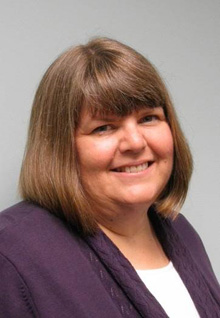 A draft of ILA’s eagerly awaited Standards for the Preparation of Literacy Professionals 2017 (Standards 2017) will be available for public comment from April 17 to May 8. In the weeks leading up to the public comment period, we’ll take a look at the significant changes proposed in Standards 2017, which will be submitted for Council for the Accreditation of Educator Preparation (CAEP) approval in fall 2017 and published in early 2018. Once approved by CAEP, ILA’s new set of seven standards will become the ruler by which preparation programs for literacy professionals, specifically reading/literacy specialists, are measured.
A draft of ILA’s eagerly awaited Standards for the Preparation of Literacy Professionals 2017 (Standards 2017) will be available for public comment from April 17 to May 8. In the weeks leading up to the public comment period, we’ll take a look at the significant changes proposed in Standards 2017, which will be submitted for Council for the Accreditation of Educator Preparation (CAEP) approval in fall 2017 and published in early 2018. Once approved by CAEP, ILA’s new set of seven standards will become the ruler by which preparation programs for literacy professionals, specifically reading/literacy specialists, are measured.
Assessment and Evaluation are the focus of Standard 3 of Standards 2017, addressing how teaching candidates use a variety of assessment tools and practices to plan and evaluate effective literacy instruction.
When lead writer Virginia Goatley, professor and chair of the Literacy Teaching and Learning Department at University of Albany-SUNY, and her team approached this Standard, the first step was to include more educators in the assessment process, including literacy coaches and specialists. Assessments do not solely fall to the classroom teacher, she said.
Goatley notes Standard 3 is meant to work closely with Standard 2, Curriculum and Instruction: “Standard 2 will provide guidelines for Curriculum and Instruction, while Standard 3 addresses how to assess it. We focus on using multiple sources of data and letting that data drive decision making in instruction.”
“As professionals, we understand the value of assessment. If you have teachers who are using data to inform instruction and are considering multiple forms of data, there are implications for necessary intervention. We’re saying you need to be strategic.”
Goatley and her team did not take on the politics or controversy of assessment, although there are expectations for specialists to be advocates for students with various audiences and stakeholders.
The Standard 3 writing team was:
- Darion Griffin, senior associate director of Educational Issues for the American Federation of Teachers
- Debra Miller, professor of education, McDaniel College, Westminster, MD
- Jennifer Jones-Powell, associate professor, Radford University, VA
Peruse the entire Standards 2017 draft when it is posted for public comment on April 17 and be sure to make your voice heard.
 April Hall was editor of Literacy Daily. A journalist for more than 20 years, she has specialized in education, writing, and editing for newspapers, websites, and magazines.
April Hall was editor of Literacy Daily. A journalist for more than 20 years, she has specialized in education, writing, and editing for newspapers, websites, and magazines.